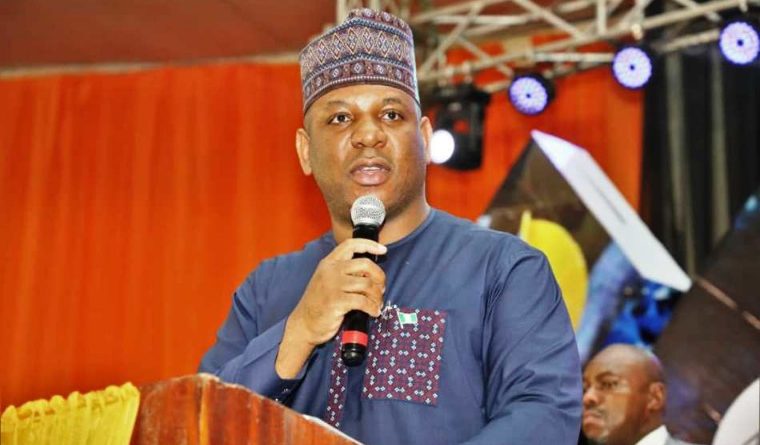FG moves to end export of raw mineral ores, integrates value chain approach
The federal government has reaffirmed its commitment to ending the export of raw mineral ores from Nigeria, describing the practice as economically unproductive and detrimental to the country’s industrial growth.
Speaking at the 40th Annual General Meeting of the Nigerian Metallurgical Society (NMS) on Thursday in Abuja, Shuaibu Abubakar Audu, minister of Steel Development, said the government is prioritising value addition through local processing, refining, and manufacturing across the metallurgical sector.
Audu noted that the era of exporting raw mineral ores without beneficiation must give way to a fully integrated value-chain approach that enhances domestic capacity and competitiveness.
“Our focus is now on in-country value addition from exploration and mining to smelting, refining, fabrication, and the production of finished goods,” he said.
Represented by Christopher Wamje, the minister said the federal government is determined to promote local refining of metallic ores such as iron, tin, lead, zinc, and lithium, in order to strengthen Nigeria’s industrial base and create employment opportunities.
He outlined the government’s plans to develop clusters for metallurgical processing and fabrication, foster collaboration between industry players, research institutions, and academia for technology transfer and innovation, and create incentives for investors committed to downstream development and job creation.
Audu expressed optimism that these measures would reposition the mining and metallurgical sectors as key drivers of industrialisation, infrastructure growth, and GDP expansion.
“Strengthened collaboration between industry, research institutions, and academia for technology transfer and innovation; and create Incentives for investors who demonstrate commitment to downstream development and job creation.”
According to him, the metallurgical sector provides a vital link between mining, manufacturing, infrastructure, defense, transportation, and energy, serving as the backbone of industrial advancement.
“Metallurgy is not just a technical discipline; it is the foundation upon which industrial capacity, technological advancement, and national competitiveness are built,” Audu added.
The minister called on metallurgists, investors, and stakeholders to align with the government’s vision to transform Nigeria’s mineral wealth into sustainable economic prosperity through local value addition and industrial integration.
On his part, Fidelis Achiv, president of Nigerian Metallurgical Society (NMS), said the society’s annual conference was aimed at fostering collaboration among industry stakeholders and promoting value addition in mineral exploration.
He lamented that Nigeria continued to lose huge revenue due to the export of raw minerals without processing.
Achiv said the society was advocating for stronger government involvement, education of miners, and partnerships with the private sector to ensure minerals were processed locally before export.
He also emphasised the need to revive and modernise the Ajaokuta Steel Company, which he described as a vital asset capable of transforming Nigeria’s industrial base if concessioned to credible investors.
Bege Gaiya, executive chairman of Zangon Kataf Local Government Area, Kaduna State, stressed the need for government to take full control of mining activities across the country.
Read also: FG launches NIPOST–Paystack portal to boost revenue, transparency in customs payments
According to Gaiya, this will help to curb environmental degradation, community conflicts, and illegal operations by artisanal miners.
He said unregulated mining had led to pollution and clashes in communities, adding that local authorities must prioritise environmental protection and community welfare over monetary gains.
Gaiya urged the federal government to adopt the same level of oversight in the solid minerals sector as seen in the oil industry.
According to him, effective regulation will among other things, significantly boost Nigeria’s Gross Domestic Product (GDP) and enhance national security.

